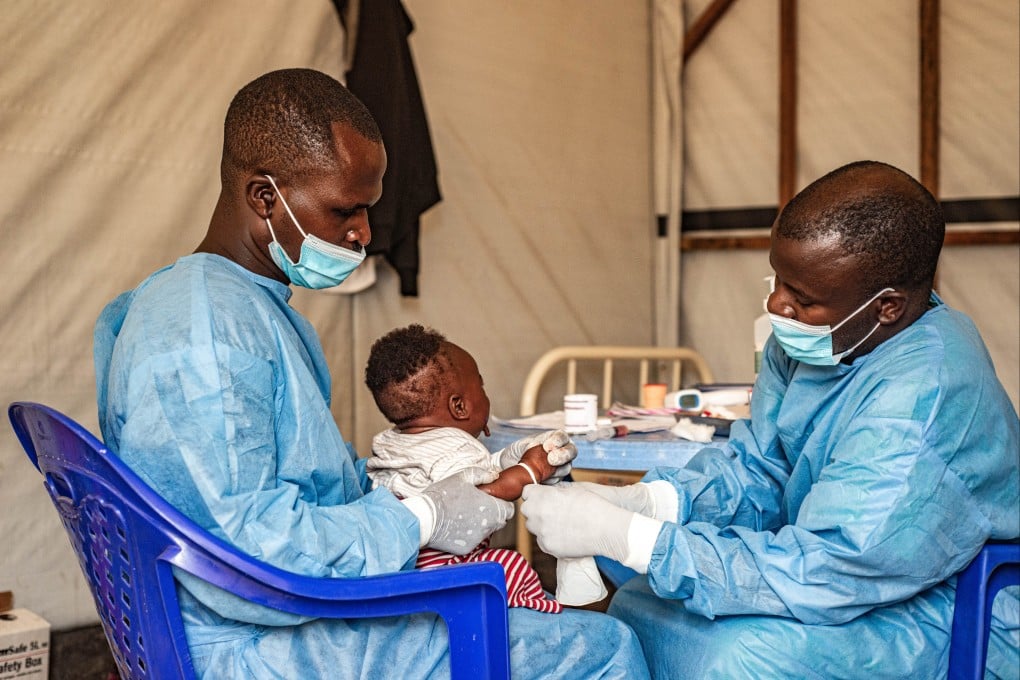Mpox’s ‘big evolutionary jump’ hinders efforts to track its spread
- The new mutated strain appears to be spreading more quickly in children and adolescents, posing challenge to contain the outbreak of the disease

The surge of cases is centred in the Democratic Republic of Congo, a country roughly the size of western Europe that’s been wracked by decades-long conflict, severe poverty and malnutrition as well as camps housing hundreds of thousands of displaced people. Now, just like the coronavirus, influenza and the many other pathogens that pose persistent risks, the virus that causes mpox is mutating, further complicating the effort to track its spread.
With this outbreak, mpox had “a big evolutionary jump,” said Tulio de Oliveira, director of Stellenbosch University’s Centre for Epidemic Response and Innovation near Cape Town. “We have every reason to believe that there are many more cases that we have not detected.”
The last big surge of mpox in 2022 was also declared a public health emergency of international concern by the World Health Organization in Geneva. That was caused by a milder strain of the virus known as clade IIb. The new mutated strain is related to a more virulent version called clade I that appears to be spreading more quickly in children and adolescents, as well as through sexual contact.
The DRC has dealt with outbreaks of diseases such as Ebola, cholera and malaria before – often with little global assistance. In the current mpox outbreak, the government last month reported an exponential increase in infections. The country has developed a vaccination strategy, Roger Kamba, Congo’s public health minister, said in a video posted on the X social media site.
In a later briefing, broadcast on national television, he said 2.5 million people will need to be vaccinated to stop the spread of the disease. For that to happen, 3.5 million doses will be required and that will cost hundreds of millions of dollars, he added, urging to the international community to provide assistance.
